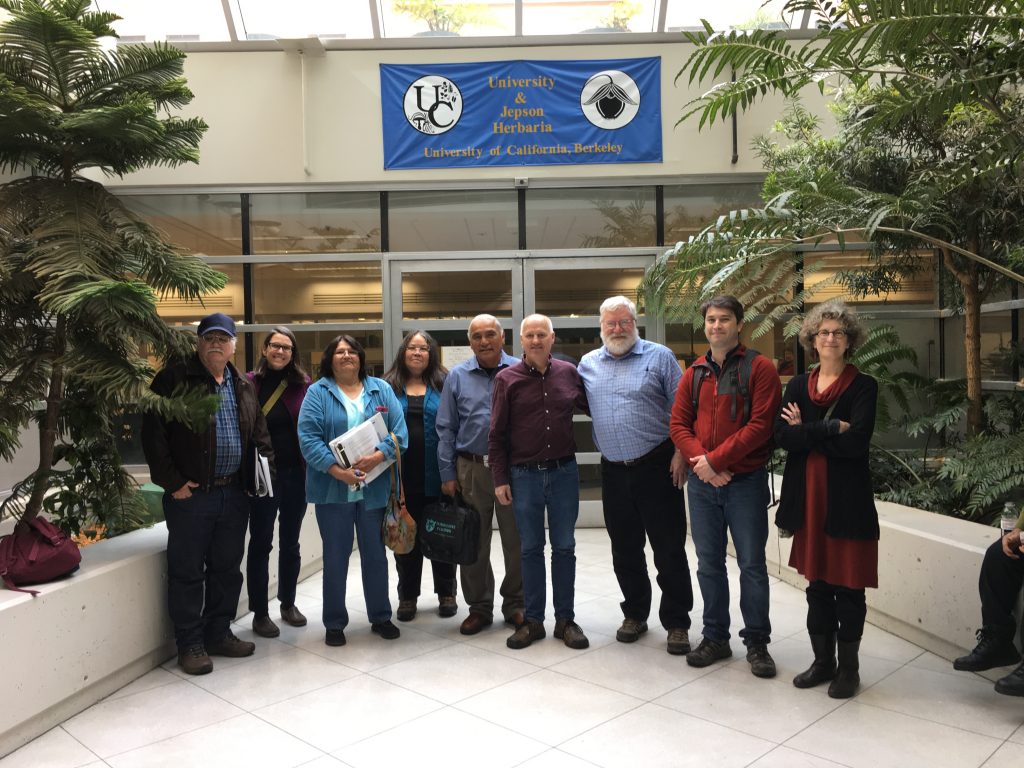
Owens Valley visitors at the University & Jepson Herbaria
In late February, members of the Bishop, Big Pine, Lone Pine, and Mono Lake Paiute Tribes traveled from the Owens Valley area to visit UC Berkeley, and met with the UC Berkeley Food Security team. The now-arid Owens Valley lies north and east of Los Angeles. The Owens River and the Valley’s groundwater supply were decimated by the Los Angeles Department of Water and Power to enable the expansion of Los Angeles beginning in the early 20th century.
Since 2011, Bishop Paiute tribal elder and water activist Harry Williams has collaborated with Berkeley professor Pat Steenland and the students in her “Researching Water in the West” American Cultures class. Fruits of this partnership have included survey documents (rediscovered by former undergraduate Jenna Cavelle in UC Berkeley’s Bancroft Library archives) showing the location of ancient Paiute irrigation channels in the Owens Valley, transcription of handwritten records of Tribal cultural knowledge compiled in the 1930s, and the making of Paya: The Water Story of the Owens Valley Paiute, a moving documentary on the theft of Owens Valley water and the Tribes’ ongoing efforts to reclaim their water rights, directed by Cavelle. Paiute from the Owens Valley make annual visits to UC Berkeley. This year, Harry Williams was joined by Charlotte Lange, Chairperson of the Mono Lake Paiute Tribe; Kathy Bancroft, environmental monitor of Owens Dry Lake and Tribal Heritage Preservation Officer (THPO) for the Lone Pine Paiute Tribe; and Bill Helmer, retired THPO for the Big Pine Paiute Tribe.
The Owens Valley folks toured the University and Jepson Herbaria, and shared their efforts to reestablish Tribal sovereignty over their ancestral water and land. The Big Pine Paiute have a farmer’s market and demonstration garden as part of their Sustainable Food System Development Project, and the Bishop Paiute have an elders’ aquaponics greenhouse and community garden as part of their Food Sovereignty Program. They were interested to hear about the process and results of our collaborative Food Security research with the Karuk, Yurok and Klamath Tribes.
“Sharing what we and our partners have learned in the Klamath is one important way to support Tribal food security everywhere,” said the Klamath Basin Tribal Food Security Project’s Jennifer Sowerwine. “We look forward to more opportunities to exchange information with the Owens Valley and Mono Lake Paiute tribal communities.”